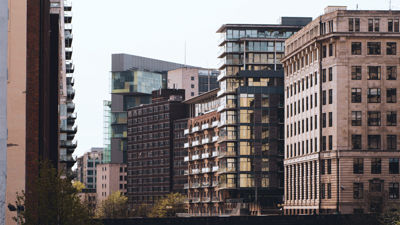The Government’s Building Safety Bill, introduced in draft form in July 2020, is the next ‘key step in an extensive overhaul to building safety legislation’. The reforms laid out in the Bill are set to create ‘lasting generational change and a clear pathway for the future on how residential buildings should be constructed and maintained.’ With the completion of the parliamentary stages in the House of Commons and the House of Lords, the Building Safety Bill has now received Royal Assent, making the Bill an Act of Parliament.
In the wake of the Grenfell tragedy, the Bill has introduced clear accountabilities for all those involved in the construction, upkeep and repair of high-risk buildings in England. The Bill’s comprehensive reform to building safety legislation will include the appointment of a Building Safety Regulator who will ensure those living in high rise buildings are being kept safe.
Having extensively engaged with Government and other stakeholders for several years, including the recent Building Safety Bill debates in Parliament at Committee Stages, ARMA and IRPM – now merged as The Property Institute (TPI) - secured a number of significant amendments of the Bill, including:
-
- scrapping of the Building Safety Charge
- removal of the duty to appoint a building safety manager
- additional powers for resident directors to appoint third-party professional directors
Andrew Bulmer, CEO of The Property Institute, commented: “The initial draft Bill was a first step in the right direction towards alleviating residents’ fears over unsafe cladding by ensuring accountability for the safe upkeep of higher-risk buildings, whilst granting residents complete oversight of their own building’s compliance. In its current form, as law, it is a clear call for those in the sector - including property managers, developers and landlords – to work together to identify, mitigate and manage risks to residents.
We are pleased that policymakers have listened to key suggestions from ARMA, IRPM and other industry bodies to improve how the new regime will work in practice. We will continue to work collaboratively to ensure the new Act can become the robust safety net which the industry has been striving for following the Grenfell tragedy.
However, despite the progress made there is still a mountain to climb, and we are several years away from remediating all unsafe buildings. We are waiting to see whether developers who have signed the Government’s pledge will remain true to their word and pay to fix these buildings, whether they do so to the right standard, and we also need a solution from Government for those buildings with no existing developer.
The daily strain on leaseholders, resident directors and property managers in affected buildings is extremely concerning. During the transition phase therefore, we will continue our efforts to ensure that the regulations and implementation of the Act is proportionate and practical, to avoid unnecessary delays.”
Click here to view the current version of the Bill


